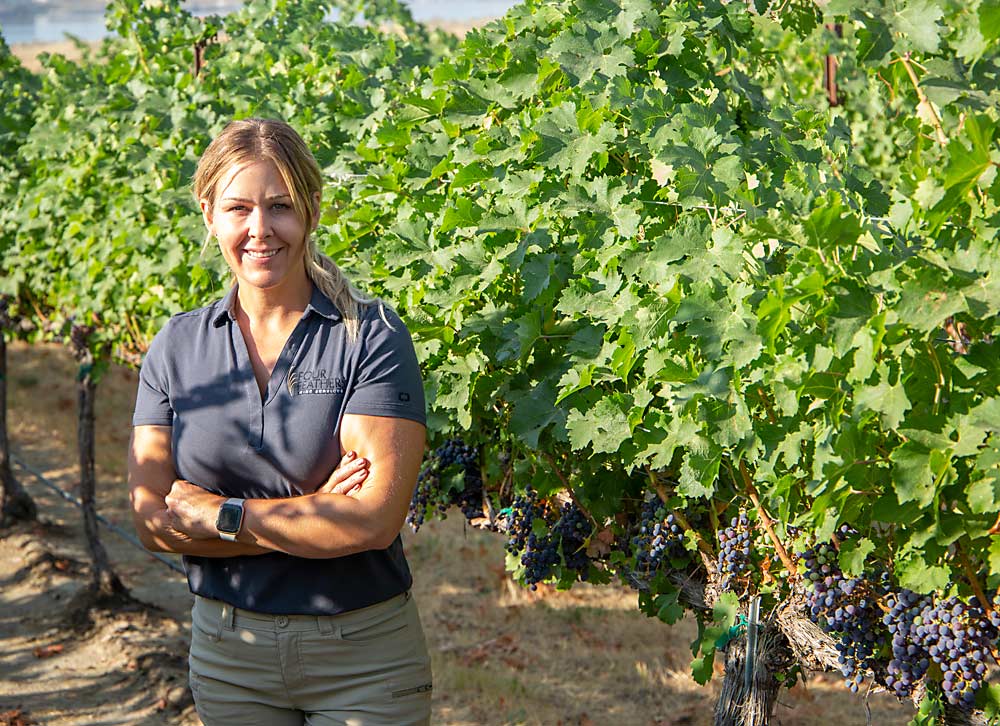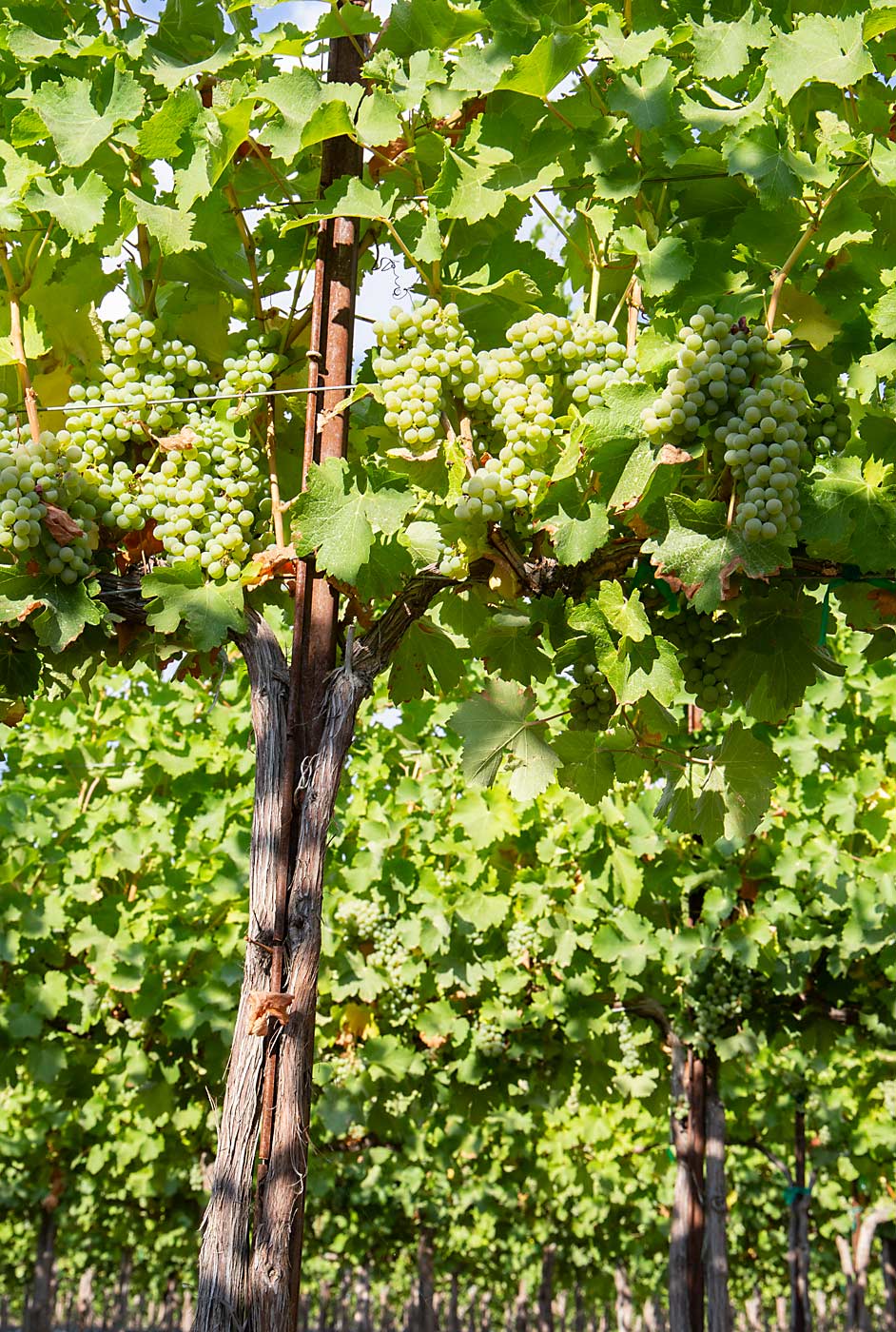
The two Sauvignon Blanc rows at first glance appear identical.
But look closer. One row has been deleafed, exposing the green clusters to the morning sun. The other has not been deleafed, and foliage hangs down among the clusters.
Two different winemakers have contracted the different rows of the McNary Vineyard in South Central Washington, and they want different management regimens, said Carly Faulk, vineyard manager and grape sales representative for Four Feathers Wine Services of Prosser.
“It’s just custom grape growing,” said Faulk, hired by Four Feathers to help launch what they call Grape Marketplace, a new approach for managing vineyards on contract with many, small winemakers. Previously, the company either used the grapes in its estate wines or sold large volumes to one big client — Ste. Michelle Wine Estates.
With the growth of boutique wineries over the past 15 years or so, custom vineyard block management — and all the challenges that come with it — has become a larger segment of the Washington wine industry.
“It’s been a long time coming,” Vicky Scharlau, executive director of Washington Winegrowers Association, said. “It’s not a new trend.”
Ste. Michelle still crushes more than half the state’s grapes, but that share has shrunk.
The key ingredient is a good relationship between grower and winemaker. Each winemaker wants something different — Brix measurements, machine-leafing, hand-picking, etc. — and will often visit with the grower in the vineyard.

“It requires a really good partnership,” Scharlau said.
It also requires some deft management skills on the part of the grower, who sometimes must manage row by row to meet those different expectations. In fact, some vineyards mark their rows with winery name signs, just as they do variety names.
Tom Waliser, a veteran vineyard manager in Walla Walla, has been managing wine grapes variably for 30 years. The growth of small, high-end wineries has asked more of growers.
“But it’s still only a part of vineyard management in Washington,” he said. Washington growers could never find enough labor to manage the state’s entire crop that way, he said.
And Scharlau is right. A trusting partnership is the key to working with smaller lots and smaller wineries, Waliser said. He has had some customers for 30 years, and they know what’s reasonable and not.
He has very rarely had to say no to a winemaker. One winemaker asked for two hand-pick harvest passes in a Cabernet block. Waliser declined. He did not have the workers for it, and, with the workers he did have, doing so would have impeded their ability to make money.
But those extreme examples are rare, he said.
“There’s a mutual understanding of what you’re both trying to achieve,” he said.
Yes, variable management is a challenge, Faulk at Four Feathers said. “It’s just harder.”
That’s why she was hired. At her previous job with Alder Ridge Vineyard in the Horse Heaven Hills, she did this kind of work for 40 to 50 clients from one vineyard.
Faulk keeps weekly detailed records on a spreadsheet, noting what works and doesn’t work for each client. She gives her crew supervisors careful instructions about management for each block, and she has workers do one thing at a time. She makes it a point to have a plan and complete every task in a timely manner, client by client.
“You just have to be detail oriented, I guess,” she said.

The demand is there. Since launching its Grape Marketplace in February, Four Feathers has already attracted dozens of custom contracts for its 3,500 acres stretching across Washington’s Columbia Valley.
The move helps vertically integrate the company and allows clients to vertically integrate with them, said Rebecca De Kleine, general manager and director of winemaking at Four Feathers.
“We want to kick it up even more next year,” De Kleine said.
The 10-year-old business is owned by Zirkle Fruit of Selah, Washington, and includes five estate vineyards, bulk winemaking, beverage innovation, packaging and a filtering system that can remediate smoke taint and other imperfections.
“So, you can go grape to bottle with us, where in the past we had, let’s say, 3,000 acres of wine grapes that went to one person, one company,” De Kleine said. “And now we serve over 300 different wine clients. We have probably 50 different packaging clients. It’s kind of incredible. Our wine goes everywhere.”
—by Ross Courtney






Leave A Comment